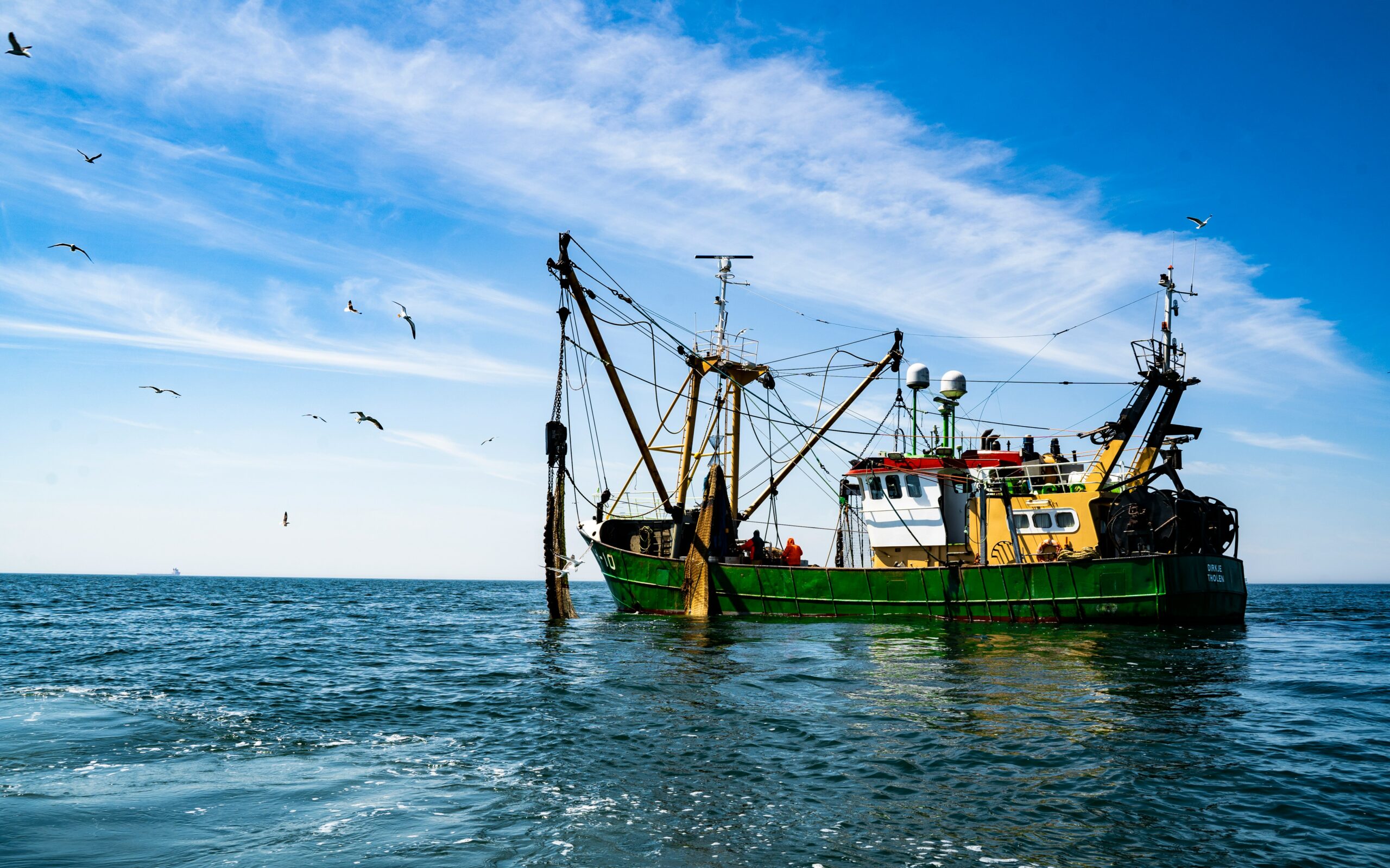Photo: Fishing boat by Paul Einerhand
The UK Government has announced a major proposal to ban bottom trawling in 41 Marine Protected Areas (MPAs) across English waters.
If implemented, it would expand existing ban on bottom trawling from 18,000 km² to 30,000 km², of the UK’s offshore areas, covering nearly a quarter of the UK’s 178 MPAs.
Environment Secretary Steve Reed, who made the announcement, said bottom trawling was damaging precious marine wildlife and habitats and that “without urgent action, our oceans will be irreversibly destroyed – depriving us, and generations to come.” The Government, he continued, is “taking decisive action to ban destructive bottom trawling where appropriate.”
Does this go beyond existing plans?
Under The Fisheries Act 2020, the Marine Management Organisation (MMO) was granted new powers to manage fishing in line with the conservation objectives of MPAs. If activities such as commercial fishing are found to undermine those goals, the MMO can, following public consultation, introduce byelaws to restrict damaging practices.
The MMO is taking a four stage approach to managing fishing in MPAs. This recent announcement is stage three of that process which targets protection for all designated seabed features not addressed in earlier stages. Having reviewed the ecological impacts of anchored nets, lines, traps, and bottom-towed fishing gear, the government is now proposing a full ban on bottom trawling across 41 sites. This proposal is detailed in the MMO MPA Fisheries Management Stage 3 Consultation Document.
Alec Taylor, Director of Policy and Research at Oceana, welcomed the UK Government’s announcement, praising it as a bold move: “UK Government should be applauded for its courage in facing into what will be difficult decisions.”
“For decades, the UK has been promoting the piecemeal protection of MPAs rather than looking at the whole picture,” he said. This new proposal, Talyor argues, marks a turning point: “It’s whole-site protection by default, not by exception.”
The National Federation of Fishermen’s Organisations (NFFO), which voiced strong criticism following the UK and EU 12-year fishing access deal, has responded with dismay to the UK Government’s announcement of a bottom trawling ban in English offshore MPAs, remarking:
“It is hard to believe that the let-down of the government’s capitulation to the EU could pale almost into insignificance in a matter of days, but it has.”
A 12-week public consultation is now underway, closing on 12th September 2025, giving fishers, conservationists, and other stakeholders an opportunity to shape the proposal.
Long way to go
While the announcement was widely celebrated by environmental groups who have long campaigned for a ban, there is broad recognition that effective implementation remains a critical challenge.
Hugo Tagholm, Executive Director of Oceana UK, said the ban—if fully enacted—could offer “an invaluable and urgently needed lifeline for England’s seas.”
Director of Policy and Public Affairs at The Wildlife Trusts Joan Edwards acknowledged that “the Wildlife Trusts have been campaigning for a long time for better management of our MPAs” and welcomed the news. “Removing this pressure is a great step forward,” she continued, and expressed her hope that following the consultation the proposed measures would be “put in place rapidly to enable recovery of these sites.”
Image description: Two trawling boats side by side at sea. Image by günter from Pixabay
Call for a ban has been intensifying ahead of UN Conference
The call for a ban on bottom trawling in UK MPAs had been intensifying ahead of the UN Ocean Conference, with public concern increasing, following the release of Sir David Attenborough’s documentary “Ocean,” which shows video footage of such fishing methods.
Ahead of the conference, Sir David Attenborough shared his concerns with Prince William: “What we have done to the deep ocean floor is just unspeakably awful,” he said. “If you did anything remotely like it on land, everybody would be up in arms.”
Photo: Sir David Attenborough (Silverback Films and Open Planet Studios/PA)
Last week, a cross-party group of UK MPs called on the government to ban bottom trawling, dredging, and seabed mining in the country’s MPA), citing the destructive impact these activities have on marine ecosystems. The Environmental Audit Committee (EAC) released a report, highlighting that despite the designation of nearly 180 MPAs covering approximately 900,000 square kilometres, practices like bottom trawling are still permitted in many of these areas.
Pressure on Macron to follow suit
Ahead of the UN ocean conference, French President Emmanuel Macron has faced mounting criticism from both environmental groups and the fishing industry, caught in the crossfire between competing demands.
Despite Macron’s ambitious goals for the summit—including a push to secure ratification of the High Seas Treaty by 60 countries—campaigners argue that France’s domestic actions fall short of its global rhetoric. Environmental NGO Oceana has called out France for having ‘marine paper parks.’
Currently, bottom trawling remains legal in 98% of France’s Marine Protected Areas (MPAs), with only 0.03% receiving strict protection. While fishers warn that restricting such practices could jeopardise their livelihoods, others argue that real protection must come with meaningful regulation.
In response to growing pressure, Macron pledged to “limit” bottom trawling and protect 4% of French waters from the practice. Still, campaigners say this is not enough to establish France as a true leader in ocean conservation.
Alexandra Cousteau, renowned French environmental advocate and granddaughter of Jacques Cousteau, voiced her disappointment:
“This is a missed opportunity to secure resilient and abundant oceans for fishers, for coastal communities, and for future generations. Allowing bottom trawling in marine protected areas makes a mockery of the very concept of protection.”
As international eyes turn to France’s next move, the pressure is on for Macron.


